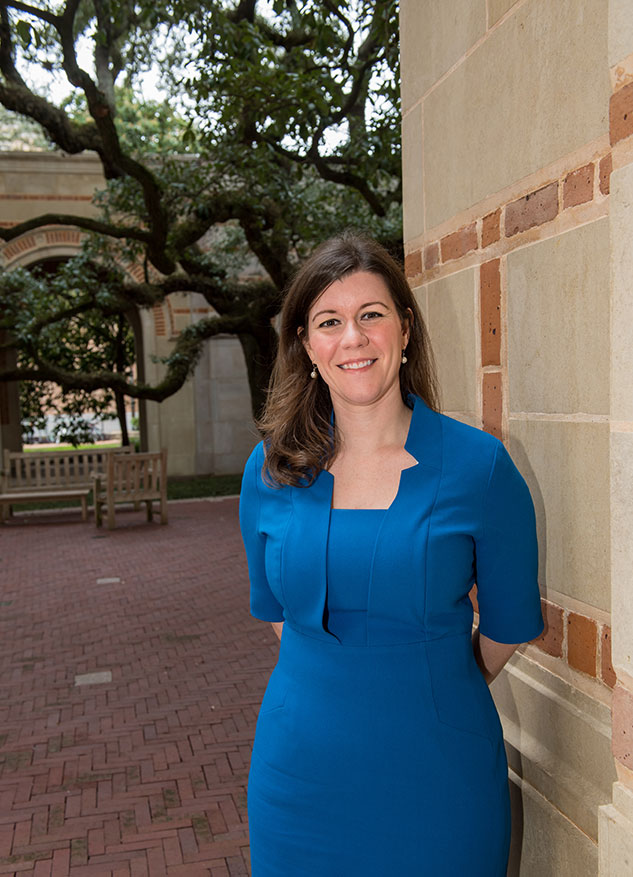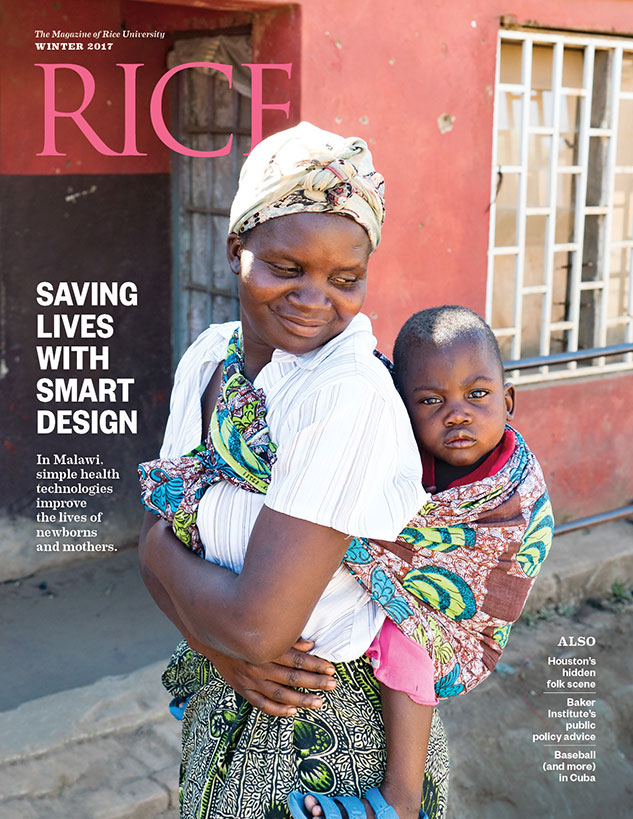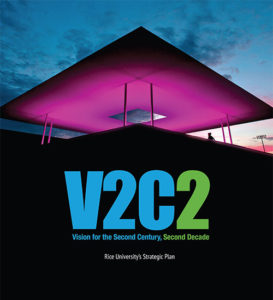Q&A with Elizabeth Barre
Last spring, Elizabeth Barre, associate director of the Rice Center for Teaching Excellence and adjunct assistant professor of religion, taught “Democracy and Disagreement” at the Glasscock School of Continuing Studies at Rice. “If the 2016 U.S. presidential election taught us anything, it is that there may be no limit to the degree of disagreement possible within a democracy,” she wrote in the course description. “As diversity of perspectives is a hallmark of democracy, such disagreement is both natural and understandable. Yet how we respond to these divisions can have significant implications for the stability of public order, civil society and even our personal relationships.”
Barre will teach this class again in Spring 2018 at the Glasscock School. We asked her a few questions about the course and this front-and-center topic in contemporary American life.

Photo by Tommy LaVergne
What is a comparative ethicist?
The easiest way to answer this question is to say that comparative ethicists study the similarities and differences between the moral arguments humans make.
What does your research focus on and do you consider the focus to be timely in terms of current political, moral and policy discussions swirling in the US today?
My work compares arguments about the consequences of moral disagreement. If we disagree about morality, how should we make decisions about the law? What are our obligations to fellow citizens who disagree with us? Many political philosophers believe the institutions and norms of liberal democracy should guide our behavior on both fronts, and they are confident we can achieve an “overlapping consensus” about this among all “reasonable” people. My work explores whether this confidence is warranted by comparing the arguments of liberal political philosophers to the arguments of Catholics and Muslims who have constructed parallel responses to the problem of moral disagreement.
Part of what is so unnerving about the current political environment is that we are not simply disagreeing about policy; we often find ourselves disagreeing about the basic norms of liberal democracy itself. And as a result, we find ourselves far more perplexed about how we should respond to those who disagree with us than we have been in the recent past.
Part of what is so unnerving about the current political environment is that we are not simply disagreeing about policy; we often find ourselves disagreeing about the basic norms of liberal democracy itself. And as a result, we find ourselves far more perplexed about how we should respond to those who disagree with us than we have been in the recent past. We understand what liberal democracy demands of citizens who disagree about tax policy. But what of citizens who disagree about whether we must respect one another as equals?
By highlighting the fragility of any overlapping consensus we have secured, my work shows that the deep moral disagreements we face today are not historical anomalies. At the same time, it provides a way forward, pointing to the significance of how citizens respond to such disagreements as the foundation of any future consensus we might achieve.
What motivated you to teach the GSCS course?
Cathy Maris in Continuing Studies was eager to offer a course related to the current political climate, so when she learned of the course I was teaching Rice undergraduates in the fall of 2016, she asked me to offer a version for the wider community through the Glasscock School. I was eager to sign on, as I hoped (and still hope) that helping others think about what democratic citizenship requires of them might, in some small way, contribute to the rebuilding of our public political culture.
What was the key difference between this audience and the undergraduate classroom?
I think the life experience of these students made a difference for the conversations we could have. Students in the GSCS class were current or former federal employees, educators, artists, scientists, parents, and grandparents. They came from all over the world and arrived with a variety of political perspectives. This diversity allowed me to sustain conversations that moved in multiple directions and extended well beyond the core material. My undergraduate students had important intuitions about all of the issues we discussed, but given that most had had relatively similar life experiences up to that point, they were ironically less likely to disagree with one another, or with me.
Students in the GSCS class were current or former federal employees, educators, artists, scientists, parents, and grandparents. They came from all over the world and arrived with a variety of political perspectives. This diversity allowed me to sustain conversations that moved in multiple directions and extended well beyond the core material.
What is meant by the “psychological, anthropological and philosophical accounts of disagreement” that you taught in this class?
The “accounts” I was referencing there are explanations of disagreement that were developed within the context of each of those disciplines. Though disagreement is a central concern of all three disciplines, the theories that are developed in each are rarely integrated. In my mind, we can’t arrive at an informed judgment about how we should respond to disagreement until we understand the insights of all three disciplines.
As private citizens, how should we respond to disagreement?
If this question had an easy answer, I wouldn’t need to offer an entire course about it! All I can really say is: it’s complicated. Much depends on the nature of the disagreement and the goals of our response. Do we disagree about values, about whether climate change is real, or whether 2+2=4? Do we want our response to sustain relationships, advance justice, or move us toward truth? The social sciences can give us some important insight into which responses will be most effective in which contexts, but is that all that matters? Is it OK to use what we’ve learned from psychology to “win” a debate? Or do we have additional moral obligations to respect the agency of fellow citizens, engaging them as equals in conversation?
What was an example of the insights you offered on “conducting effective, respectful disagreement”?
For starters, our conversations could be significantly improved if we all recognized that moral truth is not self-evident. That is not to say that moral truth does not exist, or that it can’t be discovered. The point is simply that such discovery is hard work. As a result, we should expect moral disagreement, be less certain of our moral positions in the face of such disagreement, and engage with others with a willingness to learn together through mutual critique. There is nothing wrong with trying to convince or educate our conversation partners about what we believe. But how often are we equally open to being convinced or educated ourselves?
There is nothing wrong with trying to convince or educate our conversation partners about what we believe. But how often are we equally open to being convinced or educated ourselves?
Is the public hungry for this kind of information?
My sense is that most of us, whatever our views about specific policy matters, are worried about recent changes in our public political culture. This includes our increasing polarization, decreasing support for the institutions of liberal democracy, and a near complete collapse of political discourse that starts with the premise that we should offer all fellow citizens fair terms of cooperation. So, yes, I think we’re all hungry for these conversations.






